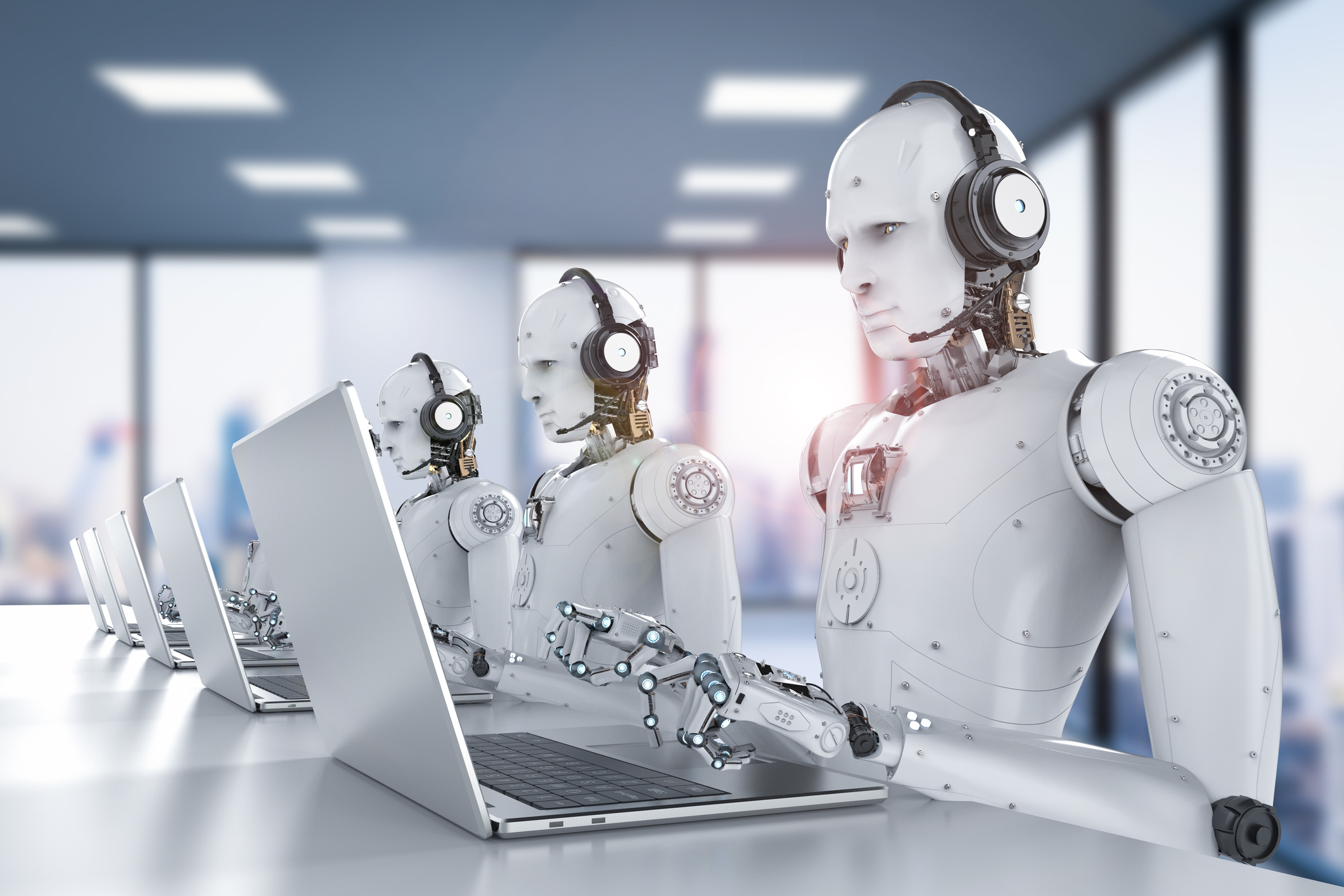The future of Artificial Intelligence at the workplace

Smart technologies are not only altering our homes, they are also infiltrating a range of industries. Artificial Intelligence has the potential to increase productivity, efficiency and precision in the organisation of work. But is this really of benefit to us? Many fear that Artificial Intelligence will lead to machines and robots replacing workers and consider this progress to be more of a threat than a means to better themselves.
The introduction of these technologies often leads to issues with unions and job security as it usually brings about substantial changes in working systems. Although Artificial Intelligence will affect every sector in some way or another, not all jobs will be similarly affected. According to the company of auditors PwC only a small number of jobs are expected to be hit by the first wave of digitalisation, namely about three percent. But this can increase drastically to 30 percent by 2035. Jobs in the transport sector are likely to be most at risk, while jobs that require social, emotional and literary skills are less threatened.
Many businesses and individuals are optimistic that the move towards Artificial Intelligence in the workplace will result in a higher level of job creation than loss. As more innovative technologies are developed, Artificial Intelligence will have a positive impact on the economy as it will lead to the creation of jobs that require new skills set to implement new systems.
It is likely that Artificial Intelligence will shortly replace jobs that involve repetitive work or basic solutions to problems. Artificial Intelligence systems will start making decisions instead of humans in industrial settings, customer care settings and in financial institutions.
Because of the wide range of jobs that could be affected by Artificial Intelligence, it is important that the disadvantages of these technologies be addressed. Among them, government must ensure that the benefits of Artificial Intelligence are shared widely among society to avoid creating social inequalities between those who have been affected and those who have not by these developments. For example, investment in the training of some workers could be increased. Employers could use the savings made by implementing Artificial Intelligence systems to strengthen and enhance workers’ skills.
Also, education systems need to focus on training students to perform roles that are directly linked with the implementation of Artificial Intelligence, including programming and data analysis. This requires increased emphasis on subjects such as science, technology, engineering and mathematics. Subjects to do with the building of creativity, social and emotional skills should also be encouraged.
While Artificial Intelligence will be more productive than humans in repetitive work, workers will always perform better than machines in jobs that require relationships and imagination.
Artificial Intelligence will definitely change our world, both within the place of work and outside it. Instead of focusing on our fear of digitalisation, workplaces should embrace these new technologies to ensure that they implement the most effective Artificial Intelligence systems that complement human intelligence.
